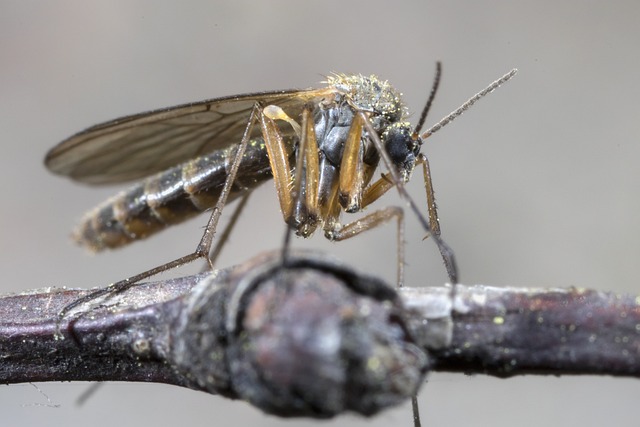Mosquito barriers are essential tools in combating mosquito-borne diseases and enhancing outdoor comfort. From physical screens to chemical treatments, various strategies offer long-term protection. Professional mosquito barrier services cater to diverse environments, targeting breeding grounds and reducing populations. These measures significantly improve public health, especially in tourist areas, fostering safer outdoor experiences. Effective control requires understanding local needs, selecting suitable methods, and regular maintenance to ensure a mosquito-free environment. Case studies demonstrate the success of such interventions in urban and community settings, revolutionizing outdoor spaces for better living and tourism.
“Mosquitoes pose a significant health risk, transmitting diseases that impact millions globally. In response, mosquito barrier services have emerged as essential tools for protection. This comprehensive guide delves into every aspect of mosquito control, from understanding these tiny yet formidable pests to exploring effective barrier systems and implementation strategies. We’ll navigate the various types, highlight success stories through case studies, and provide insights on maintenance, ensuring a lasting solution to this ancient problem in today’s world.”
Understanding Mosquito Barriers: A Comprehensive Guide
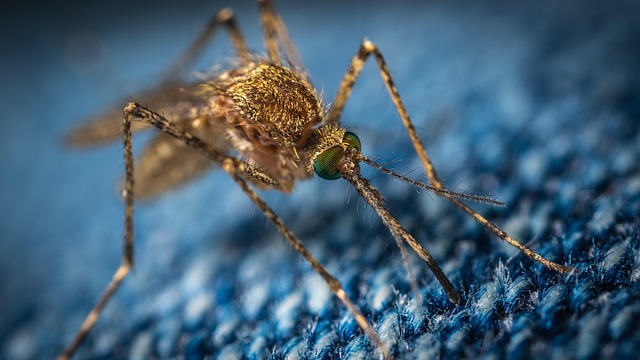
Mosquito barriers are an effective and comprehensive approach to mosquito control, designed to prevent these pesky insects from entering specific areas or causing discomfort. These barriers work by creating a physical or chemical barrier that repels, inhibits, or eliminates mosquitoes at various stages of their life cycle.
In residential settings, mosquito barriers can be as simple as installing screens on windows and doors to keep them out of homes. For larger outdoor spaces like patios or gardens, treatments with insecticides or natural repellents can be applied to surfaces or plants to deter mosquitoes from landing and breeding. Understanding the different types of mosquito barriers, their benefits, and how to implement them is key to achieving a comfortable outdoor environment free from these disease-carrying pests, enhancing your overall mosquito control efforts.
The Impact of Mosquitoes on Health and Environment
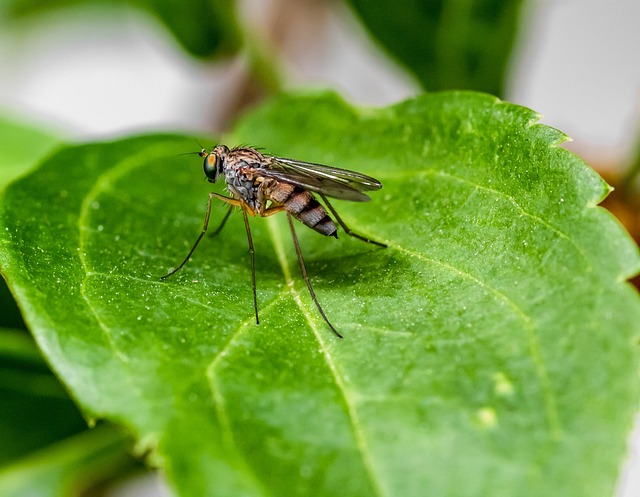
Mosquitoes, though small, have a significant impact on both human health and the environment. These insects are vectors for various diseases, including malaria, dengue fever, Zika virus, and West Nile virus, making mosquito control a crucial public health concern worldwide. Their presence in large numbers can disrupt communities, affecting outdoor activities and quality of life.
Environmentally, mosquitoes influence ecosystems by feeding on various organisms, from plants to animals. While some species play a role in pollination and nutrient cycling, others can be destructive, laying their eggs in stagnant water bodies, which can lead to breeding sites for other pests and contribute to environmental degradation. Implementing effective mosquito barrier services is essential to mitigate these impacts, ensuring safer and healthier living spaces both for humans and the environment.
Types of Mosquito Barrier Systems: An Overview
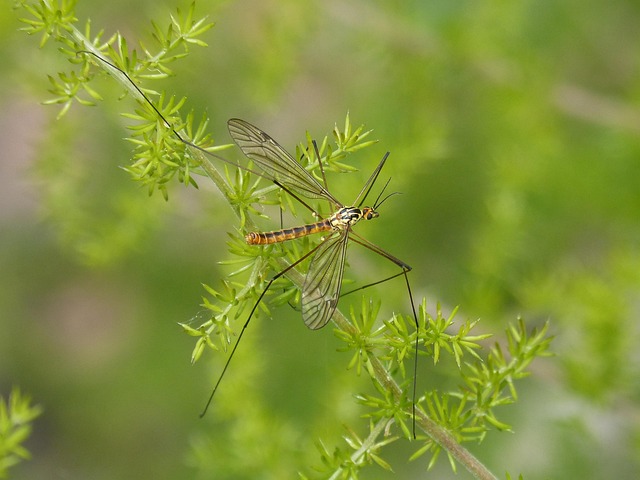
Mosquito barrier systems come in various types, each designed for specific needs and environments. One popular method is the use of physical barriers such as screens, nets, and traps. These are effective in confining mosquitoes to certain areas, like patios or gardens, providing outdoor living spaces free from these pests. Physical barriers are ideal for residential and commercial properties seeking immediate relief from mosquito harassment.
Another category involves chemical treatments, including insecticides, repellents, and larvicides. Insecticides target adult mosquitoes, while repellents deter them through scent or visual cues. Larvicides, on the other hand, are applied to water sources to kill mosquito larvae before they mature. These chemical solutions offer long-term mosquito control but require careful application and regular maintenance to ensure safety and effectiveness.
Implementing Mosquito Control: Strategies for Effective Prevention
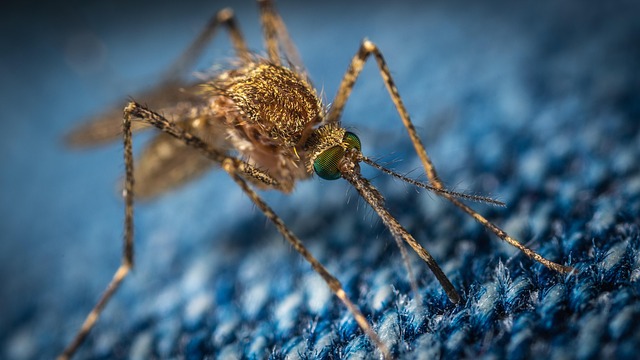
Implementing effective mosquito control is crucial for creating an outdoor space that’s enjoyable and free from these pesky insects. Strategies for prevention vary depending on the environment, but several proven methods exist. One key approach involves eliminating standing water, as mosquitoes breed in stagnant water sources. Regularly emptying containers like flower pots, buckets, and birdbaths can significantly reduce breeding grounds. Additionally, installing mosquito traps or using natural repellents like citronella plants or essential oils can help deter mosquitoes. Landscaping plays a role too; choosing plants that repel mosquitoes, such as marigolds and lavender, can create a natural barrier.
For more robust protection, professional services offering mosquito barrier treatments are highly effective. These programs typically involve applying safe, environmentally friendly chemicals to target areas, disrupting mosquito breeding cycles. Many professionals also offer comprehensive inspections to identify and address potential breeding sites. By combining these strategies, homeowners and businesses can achieve lasting mosquito control, ensuring outdoor gatherings and activities remain comfortable and pest-free.
Benefits of Professional Mosquito Barrier Services

Professional mosquito barrier services offer a multitude of benefits for homeowners and businesses alike, significantly enhancing outdoor living spaces. One of the primary advantages is the effective mosquito control provided by these services. Trained professionals employ advanced techniques and materials to create comprehensive barriers that target mosquitoes at their breeding grounds, reducing their population and minimizing bites.
Additionally, these services contribute to improved public health by mitigating the risk of mosquito-borne diseases such as Zika, West Nile, and malaria. By eliminating or drastically reducing mosquito presence, professional barriers foster a safer environment for outdoor activities, encouraging people to enjoy their patios, gardens, or event spaces without concern. This, in turn, can boost local economies, especially in tourism-driven areas where outdoor attractions are key draws.
Choosing the Right Mosquito Control Solution for Your Space

Choosing the right mosquito control solution is essential for creating a comfortable outdoor space. The first step involves understanding your specific needs and environmental factors, such as the size and layout of your property, surrounding vegetation, and local mosquito species. Different areas attract varying types of mosquitoes, each requiring tailored approaches to effective control. For instance, dense foliage can harbour breeding sites, necessitating targeted treatments in those areas.
Once you’ve identified these variables, select a mosquito control method that aligns with your preferences and budget. Professional services offer a range of options, including barrier sprays, larval control, and ultrasonic devices. Barrier sprays are effective for large areas, while larval control targets breeding grounds. Ultrasonic devices, although often marketed as natural solutions, have limited scientific evidence supporting their effectiveness against adult mosquitoes.
Case Studies: Success Stories in Mosquito Barrier Implementation
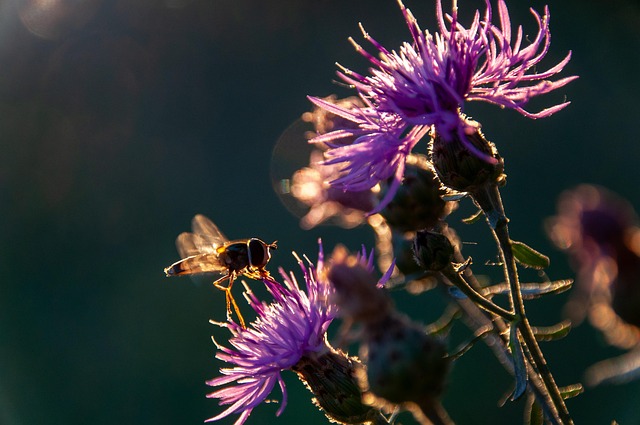
Mosquito barrier services have proven to be game-changers in the realm of mosquito control, offering effective solutions for both residential and commercial areas. Case studies from various locations showcase the success of implementing these barriers. For instance, a bustling metropolis faced an ongoing battle with mosquitoes disturbing its folks. The city administration decided to install mosquito barriers along water bodies and in green spaces. Within months, the number of reported mosquito-borne diseases plummeted, indicating a successful transformation.
Another vibrant community struggled with persistent mosquito problems affecting outdoor activities. By employing innovative barrier technologies, they were able to create a mosquito-free zone. This initiative not only enhanced the quality of life for residents but also attracted tourists who came to experience the peaceful environment, free from pesky mosquitoes. These success stories illustrate how strategic interventions can revolutionise mosquito control, fostering healthier and more enjoyable communities.
Maintenance and Upkeep: Ensuring Long-Lasting Mosquito Protection

Maintaining a mosquito barrier is crucial for ensuring long-lasting protection against these pesky insects. Regular upkeep involves inspecting the barrier system to identify any signs of wear and tear, such as torn or damaged nets or broken support structures. Promptly addressing these issues prevents mosquitoes from finding weaknesses in the barrier, ensuring maximum effectiveness of your mosquito control measures.
In addition to regular checks, proper maintenance includes keeping the area around the barrier clear of debris and vegetation that could obstruct its effectiveness. Regular cleaning and sanitizing also help maintain the integrity of the barrier, especially if it’s made of materials susceptible to mold or mildew. By implementing these simple yet vital steps, you can extend the lifespan of your mosquito barrier and continue to enjoy a comfortable outdoor environment free from mosquito bites.
